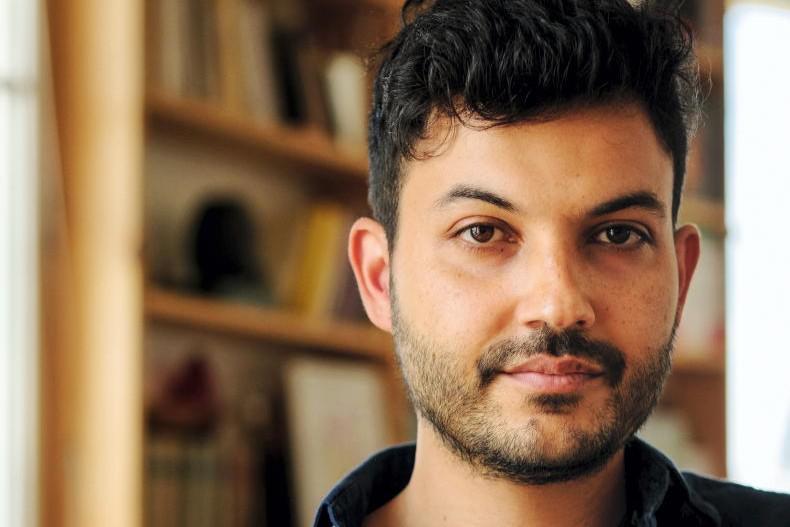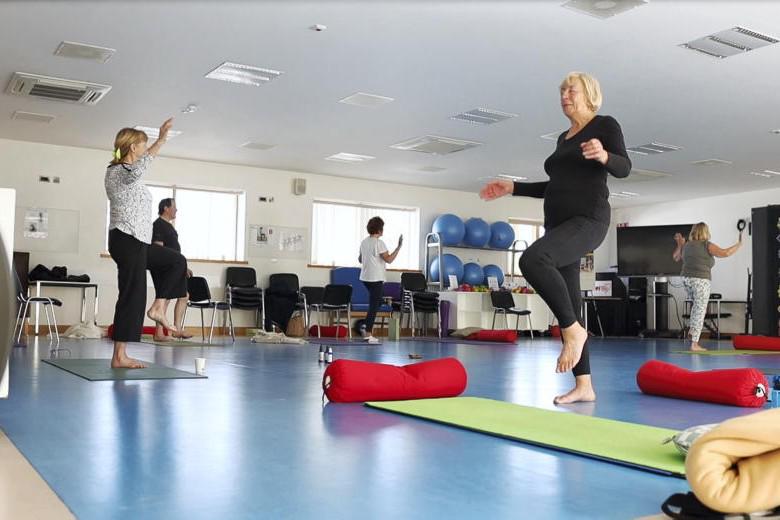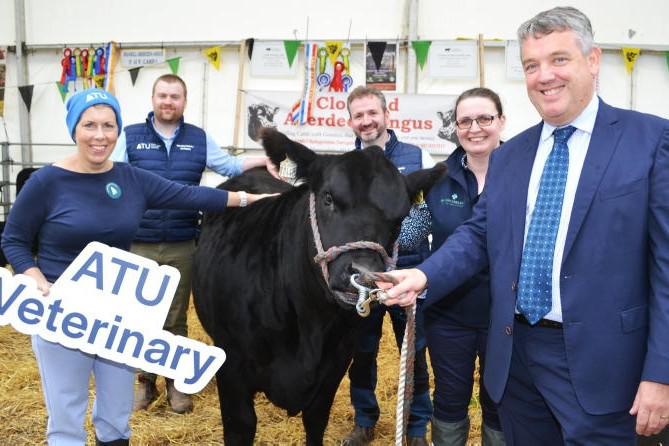Towards the beginning of her working life, Mary Moran had what would conventionally be known as a “good job”. Working with the Office of Public Works (OPW) in Galway, she received a mileage allowance, lunch allowance and other perks.
For Mary, however, this wasn’t enough. There was no job satisfaction. She says herself, “I was bored out of my trolly.”
Then, an American lady she came to know through their shared interest in horses changed her career trajectory completely. This woman, Katherine Weldin de Blois, taught children with literacy difficulties, such as dyslexia, to read.
The onus was on me to solve the problem. The onus isn’t on the child
She used a method called structured literacy, which she taught through the Orton-Gillingham approach. Developed in the States, it was one of the first approaches specifically designed to help struggling readers by explicitly connecting letters with their sounds.
Katherine tutored Mary and she completed 300 teaching hours as part of her training. Mary first began teaching reading privately to children in Galway and then Westmeath, where she still lives in Rosemount with her husband.
Accessing brains
Over nearly 40 years of teaching children to read, as Mary says herself, “I just did my thing and really didn’t collaborate with anybody else.” However, in doing her own thing, Mary developed several strategies of improving literacy for those who find it difficult.
“I had all of these ideas,” Mary explains. “Over the years I would have had mildly dyslexic children who were easy to teach. Anybody would teach them. But I also had a number of kids that I’d lie awake at night trying to figure out how could I access their brains, in that they kept making the same mistakes.”
A big message of Mary’s is that the responsibility lies with the educator to find a way to teach the child to read. It’s not up to the child to learn to read.
“The onus was on me to solve the problem. The onus isn’t on the child. You can’t say to a child, ‘Sorry, you’re unteachable. I can’t teach you.’ I’m the adult. If I’m doing the job, I have to find another way.
“I’d lie awake at night wondering, how with that specific problem am I going to access that brain. There was one particular child, he couldn’t remember the long vowels. As I was introducing new long vowels to him on drill cards, he was forgetting them.”
Mary describes the brain as a computer that you need to programme through repetition. So, she decided to allocate different colours to different long vowel sounds and it worked. Also, with syllable division she began to use Connect-Four counters, red for vowels and blue for consonants, to allow children to physically pull words apart so they could break them down and read them.
These various different methods she developed for these children were the foundation for her success.
This writer first met Mary at the Ploughing Championships a couple of weeks ago. And I didn’t happen across her, I was told I had to meet her.
A woman I got chatting to by chance couldn’t say enough good things about how Mary helped her four children. She said I should stop by her stand in the Local Enterprise tent, where Mary was showcasing her new series of books, Dcode Dyslexia.
I don’t ever want to have to turn a child away
At Mary’s stand, we met further parents dropping by to say hello, who waxed lyrical about how much Mary had done for their children.
Mary was awarded a place on the Social Entrepreneurs Ireland Impact Programme 2022-2023 for her Dcode Dyslexia books. These are a series of eight books and workbooks combining structured literacy and the strategies she developed over the years.
Social responsibility
Dcode Dyslexia came about because of the social responsibility Mary felt and still feels in teaching children how to read.
“Early last year and even before that, I had started to realise that I’m 62 now and I can’t keep doing this,” Mary says. “I don’t ever want to have to turn a child away and if a parent rings me in tears, I never want to get to the stage where I have to say, ‘I can’t help you.’
“I said, number one, if I can ever retire, I have to make sure that there’s something in place. The other side of it was, I’m only reaching a small number of children. One in five worldwide are dyslexic. I wanted to reach more people. Then I started to write the programme, which I found very easy.”
Mary still teaches reading to children, mostly now taking on older children, as she says you need a special skillset for tutoring them.
Drive
She still has the same drive she had when she started out years ago. This is because she sees the effect her work has on young people, particularly young men.
“The boys don’t wear it as well as the girls. Girls seem to be more resilient and they get on with it. Whereas the boys fall harder and earlier.
“What drives me still, is that regularly I will meet young boys; 16,17,18 year old young men, that will sit opposite me at the table, traumatised. They’re trying not to cry, because they know I’m going to put the spotlight on their weakest point. I’ll test them and they’ll have a reading age of six and a half or seven.
These poor kids go into school every day and are at the mercy of other people’s whims
“Now they have gone through national school and part of secondary school, they’ve been laughed at, sneered at by friends and classmates. Teachers and parents are telling them, they’re lazy, they’re not trying hard enough.
“These poor kids go into school every day and are at the mercy of other people’s whims and how they’re going to speak to them and address them. Not understanding that these kids are actually working harder than anybody else in the school.
“The reason they’re not getting results is because they’re not being taught how to read properly. If they’re taught how to read through structured literacy, they will turn inside out very quickly.”
Mary is currently doing talks for both parents and teachers on structured literacy. Her hope in the future is that in time all dyslexic children will get picked up at an early age.
She also hopes that structured literacy will be taught in teacher training colleges going forward – there are inroads being made in Merino Institute of Education in Dublin at present.
From being “bored out of her trolly”, Mary certainly has found the job satisfaction she was searching for all those years ago.
Read more
Cover feature- the cupcake bloke
Farming and food meets art and community at The Barna Way
Towards the beginning of her working life, Mary Moran had what would conventionally be known as a “good job”. Working with the Office of Public Works (OPW) in Galway, she received a mileage allowance, lunch allowance and other perks.
For Mary, however, this wasn’t enough. There was no job satisfaction. She says herself, “I was bored out of my trolly.”
Then, an American lady she came to know through their shared interest in horses changed her career trajectory completely. This woman, Katherine Weldin de Blois, taught children with literacy difficulties, such as dyslexia, to read.
The onus was on me to solve the problem. The onus isn’t on the child
She used a method called structured literacy, which she taught through the Orton-Gillingham approach. Developed in the States, it was one of the first approaches specifically designed to help struggling readers by explicitly connecting letters with their sounds.
Katherine tutored Mary and she completed 300 teaching hours as part of her training. Mary first began teaching reading privately to children in Galway and then Westmeath, where she still lives in Rosemount with her husband.
Accessing brains
Over nearly 40 years of teaching children to read, as Mary says herself, “I just did my thing and really didn’t collaborate with anybody else.” However, in doing her own thing, Mary developed several strategies of improving literacy for those who find it difficult.
“I had all of these ideas,” Mary explains. “Over the years I would have had mildly dyslexic children who were easy to teach. Anybody would teach them. But I also had a number of kids that I’d lie awake at night trying to figure out how could I access their brains, in that they kept making the same mistakes.”
A big message of Mary’s is that the responsibility lies with the educator to find a way to teach the child to read. It’s not up to the child to learn to read.
“The onus was on me to solve the problem. The onus isn’t on the child. You can’t say to a child, ‘Sorry, you’re unteachable. I can’t teach you.’ I’m the adult. If I’m doing the job, I have to find another way.
“I’d lie awake at night wondering, how with that specific problem am I going to access that brain. There was one particular child, he couldn’t remember the long vowels. As I was introducing new long vowels to him on drill cards, he was forgetting them.”
Mary describes the brain as a computer that you need to programme through repetition. So, she decided to allocate different colours to different long vowel sounds and it worked. Also, with syllable division she began to use Connect-Four counters, red for vowels and blue for consonants, to allow children to physically pull words apart so they could break them down and read them.
These various different methods she developed for these children were the foundation for her success.
This writer first met Mary at the Ploughing Championships a couple of weeks ago. And I didn’t happen across her, I was told I had to meet her.
A woman I got chatting to by chance couldn’t say enough good things about how Mary helped her four children. She said I should stop by her stand in the Local Enterprise tent, where Mary was showcasing her new series of books, Dcode Dyslexia.
I don’t ever want to have to turn a child away
At Mary’s stand, we met further parents dropping by to say hello, who waxed lyrical about how much Mary had done for their children.
Mary was awarded a place on the Social Entrepreneurs Ireland Impact Programme 2022-2023 for her Dcode Dyslexia books. These are a series of eight books and workbooks combining structured literacy and the strategies she developed over the years.
Social responsibility
Dcode Dyslexia came about because of the social responsibility Mary felt and still feels in teaching children how to read.
“Early last year and even before that, I had started to realise that I’m 62 now and I can’t keep doing this,” Mary says. “I don’t ever want to have to turn a child away and if a parent rings me in tears, I never want to get to the stage where I have to say, ‘I can’t help you.’
“I said, number one, if I can ever retire, I have to make sure that there’s something in place. The other side of it was, I’m only reaching a small number of children. One in five worldwide are dyslexic. I wanted to reach more people. Then I started to write the programme, which I found very easy.”
Mary still teaches reading to children, mostly now taking on older children, as she says you need a special skillset for tutoring them.
Drive
She still has the same drive she had when she started out years ago. This is because she sees the effect her work has on young people, particularly young men.
“The boys don’t wear it as well as the girls. Girls seem to be more resilient and they get on with it. Whereas the boys fall harder and earlier.
“What drives me still, is that regularly I will meet young boys; 16,17,18 year old young men, that will sit opposite me at the table, traumatised. They’re trying not to cry, because they know I’m going to put the spotlight on their weakest point. I’ll test them and they’ll have a reading age of six and a half or seven.
These poor kids go into school every day and are at the mercy of other people’s whims
“Now they have gone through national school and part of secondary school, they’ve been laughed at, sneered at by friends and classmates. Teachers and parents are telling them, they’re lazy, they’re not trying hard enough.
“These poor kids go into school every day and are at the mercy of other people’s whims and how they’re going to speak to them and address them. Not understanding that these kids are actually working harder than anybody else in the school.
“The reason they’re not getting results is because they’re not being taught how to read properly. If they’re taught how to read through structured literacy, they will turn inside out very quickly.”
Mary is currently doing talks for both parents and teachers on structured literacy. Her hope in the future is that in time all dyslexic children will get picked up at an early age.
She also hopes that structured literacy will be taught in teacher training colleges going forward – there are inroads being made in Merino Institute of Education in Dublin at present.
From being “bored out of her trolly”, Mary certainly has found the job satisfaction she was searching for all those years ago.
Read more
Cover feature- the cupcake bloke
Farming and food meets art and community at The Barna Way









SHARING OPTIONS